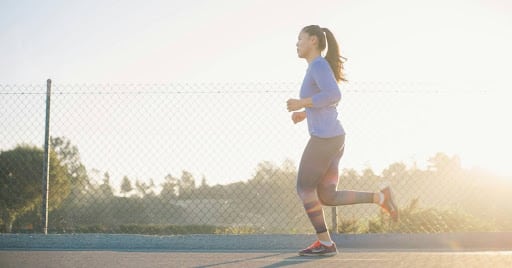The famous banter by Adam Sandler’s character Bobby Boucher and the football players in The Waterboy. If you’ve seen the comedy, you know Bobby Boucher was a waterboy for the local Louisiana football team, and he had a love for water. The football team would tease him and snidely utter several “Gatorade” slams at Boucher to get under his skin. If you haven’t seen the movie, you should, but as the story goes, Boucher joins the football team due to his incredible tackling ability. This talent was discovered once Boucher reached a point of frustration from defending his beloved water. He soon channeled his anger from other areas of frustration and became a great football player.
The way Bobby Boucher tackled in the movie, no one would question if water was better than Gatorade anymore, but in the real world, what is better: water or sports drinks?
 The answer really lies in another question: how long and how hard are you exercising? Water is superb for hydration purposes. It’s the life source. It prevents dehydration. Our body needs water, and the majority of Americans are not getting enough of it. When it comes to exercise, it is recommended to drink 500-600 mL (17-20 oz.) of fluids 2 hours prior to exercise. During exercise you should drink based on how much sweat you lose, or roughly 7-10 oz. every 10-20 minutes. Once you are finished with your workout, consume 16-24 oz. of fluid for every pound of body weight lost for replenishing purposes.
The answer really lies in another question: how long and how hard are you exercising? Water is superb for hydration purposes. It’s the life source. It prevents dehydration. Our body needs water, and the majority of Americans are not getting enough of it. When it comes to exercise, it is recommended to drink 500-600 mL (17-20 oz.) of fluids 2 hours prior to exercise. During exercise you should drink based on how much sweat you lose, or roughly 7-10 oz. every 10-20 minutes. Once you are finished with your workout, consume 16-24 oz. of fluid for every pound of body weight lost for replenishing purposes.
So if these are the recommended amounts of fluid consumption, should it be water or a sports drink? Again, it depends on how much you sweated and how long you worked out. Sports drinks contain water, but they are also packed with electrolytes and carbohydrates. In simple terms, the electrolytes are sodium (salt), potassium, magnesium, and calcium. The carbs in sports drinks are sugar. You need to be mindful of how much sugar is put into your sports drink. Some contain more than others. If you are drinking a sports drink with dinner, because you think it’s healthy, you might be loading your body with unnecessary sugar and calories, especially if you didn’t work out that day. Likewise, if your workout was not very intense and less than, say, an hour (60 minutes), your body doesn’t necessarily need to replenish lost sodium (through sweating) or refuel with carbs if you haven’t tapped out what was already in your body.
 Drink sports drinks if you are actively working out, or working out very hard for long periods, like interval training. Drink water throughout the day to keep your body hydrated and follow the above guidelines for drinking water a couple of hours before your workouts. If your workouts are very intense, drink sports drinks as the guidelines describe, every 10-20 minutes to keep your glycogen levels at a good level to fuel you. Unless your workouts took you to a point where you used up all your stored sugars, just drink water (16-24 oz. for every pound of body weight lost) to replenish your fluid. This will help your metabolism continue to burn calories as your body searches for fuel.
Drink sports drinks if you are actively working out, or working out very hard for long periods, like interval training. Drink water throughout the day to keep your body hydrated and follow the above guidelines for drinking water a couple of hours before your workouts. If your workouts are very intense, drink sports drinks as the guidelines describe, every 10-20 minutes to keep your glycogen levels at a good level to fuel you. Unless your workouts took you to a point where you used up all your stored sugars, just drink water (16-24 oz. for every pound of body weight lost) to replenish your fluid. This will help your metabolism continue to burn calories as your body searches for fuel.


